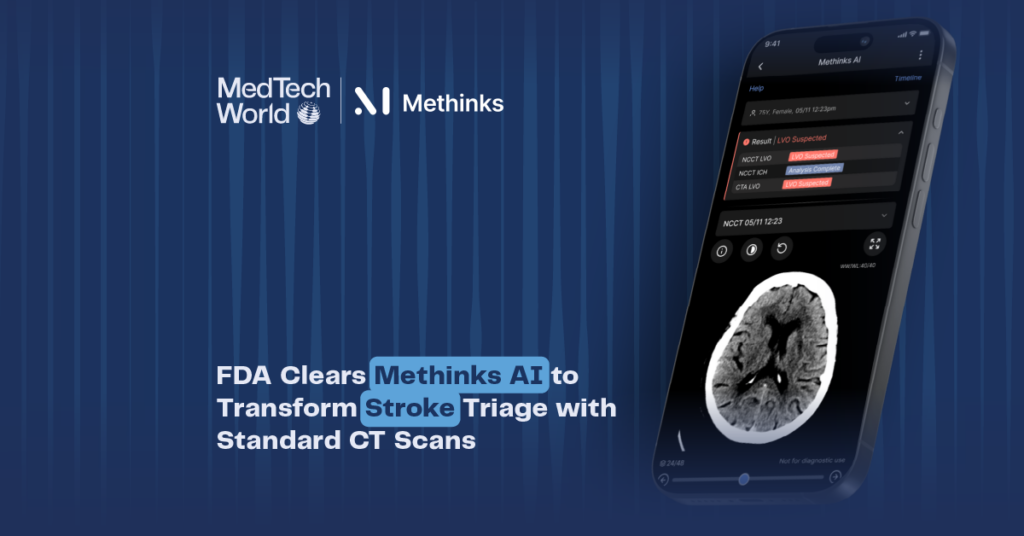
Michael Joe Cini
9th June 2023
Lindus Health Secures Innovation Grant to Accelerate Tech Integration in Clinical Trials
London-based solutions provider, Lindus Health, has recently announced the receipt of a grant to promote their work in applying machine learning and data science to clinical trials. Lindus Health’s innovative solution is designed to make it easier to carry out clinical trials effectively and ethically while decreasing the time it takes for new treatments to be tested and approved. With dozens of trials already delivered using the company’s pioneering software, their AI solution has the potential to revolutionize clinical trials in drug development.
Lindus Health wins £500K innovation UK grant to advance clinical trials
Having made ground-breaking innovations by accelerating clinical trials across the US, UK, and Europe, London-based company Lindus Health has now received an Innovate UK Smart Grant to accelerate the development of their product for improving the execution and completion of clinical trials. The grant, part of UK Research and Innovation, is worth almost half a million pounds and is intended to boost the use of machine learning and data science to revolutionize clinical trials. UK Research and Innovation, the national agency for investment in science and research in the UK, is always looking for outstanding research and innovation to support efforts to devise new solutions that benefit lives.
Regarding Lindus Health’s work, UK Research and Innovation (UKRI) assessors described it as a “hugely valuable and game-changing project.” Lindus Health’s technology reduces the time it takes to approve treatments by reducing the time it takes to complete preclinical trials. With their technology, trials have been done three times faster, reducing the hassle and time to get viable products to market. So far, Lindus Health has delivered more than 80 clinical trials across the US, UK, and Europe, with over 20,000 patients working with their system to help researchers find new treatments for medical conditions.
How Lindus Health is changing the game
Lindus Health is on a mission to fix the problem of inefficient clinical trials to enable the next generation of healthcare. Named after James Lind, the first person to conduct a clinical trial, their solutions use AI and machine learning to bring a variety of solutions to researchers in every aspect of the clinical trials pipeline. Lindus Health’s platform has five components – Clinical, Sentry, Recruit, Studio, and Pilot.
Lindus Health’s Citrus Clinical solution allows researchers to obtain patient consent, collect and store data securely, and seamlessly create and manage a trial-specific database. With the Citrus Sentry product, Lindus Health enables researchers to track progress and derive insights in real-time, including patient screening, enrolment, and study progress.
Lindus Health’s Citrus Recruit solution also makes screening patients for clinical trials based on health records possible while providing access to over 20 million patients through dedicated patient communities. Additionally, Lindus Health’s Studio and Pilot solutions are developed to make it easy to design research protocols and procedures while making it easier to derive insights from data. “From monitoring trial data in real-time to using machine learning to predict trial outcomes and make improvements to trial designs in advance, we want to simplify and accelerate the trials process and put patients first,” said Michael Young, a co-founder of Lindus Health.
Optimizing clinical trials with technology: The journey so far
Lindus Health was founded in 2021 by Michael Young, Meri Beckwith, and Nik Haldimann. Meri Beckwith was previously a venture capital investor in biotech and digital health, while Michael had served as a Special Adviser to the UK Prime Minister in the field of life sciences. Nik is an experienced tech solutions developer with previous experience at BenevolentAI, Descartes Labs, Placemeter, and Google. Meri saw the problems that healthcare companies had to face in conducting research when he volunteered in the COVID-19 vaccine trials. He and the co-founders were motivated to develop solutions to improve trial outcomes.
So far, the company has received over $6 million in funding from investors such as Firstminute, Seedcamp, and PreSight Capital. Lindus Health has delivered more than 80 clinical trials across the UK, and they are working with multiple healthcare companies to carry out more trials. Currently, they are working with Pharmanovia to evaluate the safety and efficacy of a treatment for patients with severe insomnia in a real-world setting. Also, they are partnering with Berlin-based startup Dopavision to trial the MyopiaX treatment for children affected by progressive short-sightedness. The company is looking to enable more partnerships to bring about a new phase of healthcare.
Making clinical trials more efficient: A major challenge
Although clinical trials are at the core of drug research and development, the 50-billion-dollar industry is still fraught with significant challenges, particularly in how processes are conducted. Speaking of his experiences in the clinical trials sector during the COVID period, Meri Beckwith, a co-founder of Lindus Health, said, “Taking part in a COVID vaccine trial was like stepping into a time machine. This was one of the best-funded trials in history, but research was done on pen and paper, and participants had to go into hospital at the height of the pandemic to fill out forms.”
Currently, the process of bringing a new drug to market is expensive and inefficient. According to Business Wire, the average cost of getting a new drug to market is over $1 billion, making it difficult for pharmaceutical companies to develop new medications for chronic conditions. Additionally, new drugs can take up to 15 years to reach patients. The major drivers of this problem are the structure of current pharmaceuticals, and the existing technology used in clinical trials.
Contemporary organizations operate on a cost-plus business model, throwing resources at developing new solutions and then adding a markup to the cost price to recoup their R&D investment. While it may have served in the past, this model means that businesses are not incentivized to make their clinical trials and drug development more resource efficient. Meri Beckwith describes the current industry as populated with “dinosaurs,” who are yet to adapt their processes to meet the latest standards in technology and innovation. Many pharmaceuticals still use pen-and-paper or a potpourri of disparate technology systems, leading to poor data quality and a slow R&D-to-market process.
Discover new horizons in Healthcare with Med-Tech World
Expand your knowledge of the latest breakthroughs in the dynamic field of healthcare by marking your calendar for the highly anticipated Med-Tech World Summit in Malta this October. Engage with influential industry leaders, visionaries, and experts as they navigate the path towards the future of MedTech, fueling innovation and reshaping the healthcare landscape.




